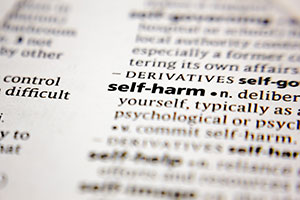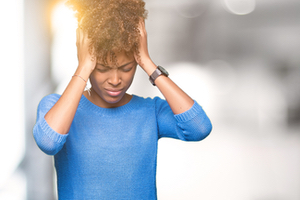Get Help For Hair Pulling
Get help for hair pulling disorder with Dr. Taji Huang, PhD in Glendale, CA. You may have tried to stop pulling out your hair on your own and failed again and again. You don’t have to struggle on your own. Dr. Taji is experienced in effectively implementing self-harm therapies.
Questions You May Be Asking
Cutting is often featured in the media that so many of us have at least heard of if. Self-injury can range from purposely burning yourself to hitting yourself to picking your skin, and yes, even to pulling your hair out.
Self-harm disorders often make us feel embarrassed, which means we don’t talk or ask about them. This leaves you with question after question and no concrete answers.
- Why do I keep pulling my hair out?
- How can I stop pulling my hair out?
- Can hair pulling cause permanent baldness?
- Do I have a hair-pulling anxiety disorder?
- Will I grow out of this, or will it go away on its own?
What Is Trichotillomania?
Repetitive, compulsive hair pulling is a mental disorder known as trichotillomania. Sufferers usually pull hair from the head, eyebrows, or eyelashes. This habit can spread to other areas of the body, to clothing, to dolls, and even to pets.
Trichotillomania often starts in the preteen years, between the ages of 10 to 13, and can last a lifetime. You may find yourself pulling out hair when you are experiencing stress, when you are relaxed, or both.
Possible Signs & Symptoms
The best way to know if you have a hair pulling disorder is to seek a diagnosis from an experienced psychologist, like Dr. Taji. If some of these signs and symptoms sound like you or someone you care about, trichotillomania may be affecting you.
- You repeatedly pull your hair out?
- It’s worse when you feel stressed or anxious.
- You feel relief after you pull out hair.
- Pulling is causing you to have shorter, thinned out hair or bald spots.
- You have noticeable hair loss.
- You have particular hair pulling rituals or habits. You like doing it “this” way.
- You like to play with pulled-out hair. Rubbing it across your lips or face, for example.
- You bite, chew, or eat hair you’ve pulled out.
- You can’t stop pulling hair out even though you’ve tried.
- You feel tense before pulling, or when you try not to do it.
Complications & Struggles
Even if you try to keep hair pulling private or secret, it usually begins to affect other parts of your life. You may have to adopt a hairstyle or start wearing clothing that hides your habit. You may feel ashamed or embarrassed and try to avoid social situations. You don’t have to limit your life or feel like a lesser person.
Therapies That Can Help
There is currently no magic pill to stop hair pulling. This problem very rarely goes away on its own. Thankfully, therapy has helped many trichotillomania sufferers. Some examples include habit reversal training, cognitive therapy, and acceptance and commitment therapy.
A therapist will help you identify triggers and find healthier ways to cope.
Are You Ready For Relief?
If you are an adult with trichotillomania, let Dr. Taji in Glendale, CA, help you find the answers and relief you are looking for. Parents of teens and tweens with a hair-pulling disorder need someone to talk to who understands and can offer solutions. Make your appointment with Dr. Taji Huang, PhD today.






